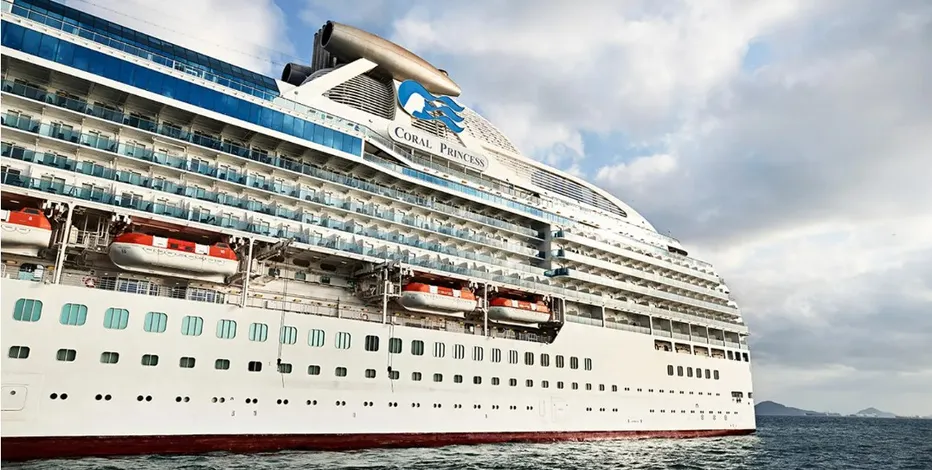A month-long cruise aboard the Coral Princess turned worrisome as a norovirus outbreak left dozens of passengers and crew members ill. The outbreak highlights the challenges of containing highly contagious viruses in confined spaces like cruise ships.
The outbreak on the Coral Princess underscores the broader implications of norovirus on public health and the travel industry. Cruise ships, known for their enclosed environments and shared facilities, are particularly vulnerable to such outbreaks.
Each incident not only impacts passengers and crew but also highlights the importance of stringent public health measures and preparedness.
Beyond cruise ships, norovirus outbreaks are a reminder of the need for ongoing research and development of effective treatments, vaccines, and educational campaigns to minimize the impact of this persistent and highly contagious virus.
The Norovirus Outbreak Aboard the Coral Princess
The Coral Princess, operated by Princess Cruises, set sail from Singapore on October 17, destined for Long Beach, California. The 31-day voyage was marked by an outbreak of norovirus, affecting 55 passengers and 15 crew members.
This number represented a significant portion of the over 2,700 people on board, triggering the Centers for Disease Control and Prevention (CDC) to monitor the situation.
Under the CDC’s guidelines, cruise ships are required to report illnesses when over 2% of those aboard exhibit symptoms. On the Coral Princess, the illness rate surpassed this threshold, prompting enhanced cleaning and disinfection measures by the healthy crew.
Read : Skip Forward: 4-Year Cruise Journey for Americans Who Want to Skip Donald Trump’s Presidency
Despite these efforts, the virus spread swiftly among passengers, showcasing the virus’s ease of transmission in crowded and shared environments.
Read : Visa-Free Entry to China via Cruise Ship: Strategy or Bold Tourism Move?
The ship docked in Long Beach on November 17, concluding the journey amidst heightened health concerns. The incident marks the 11th gastrointestinal illness outbreak aboard a cruise ship in 2024, with eight of those outbreaks attributed to norovirus.
Understanding Norovirus and Its Impact
Norovirus is a highly contagious virus known to cause acute gastroenteritis. It spreads through direct contact with infected individuals, consuming contaminated food or water, or touching surfaces where the virus is present. Once infected, symptoms typically develop within 12 to 48 hours and can last up to three days.

Common symptoms of norovirus include diarrhea, abdominal cramps, nausea, vomiting, and fever. While the illness is typically short-lived, it can lead to severe dehydration, particularly in vulnerable groups such as children, the elderly, and individuals with weakened immune systems.
The virus is notorious for its resilience; it can survive on surfaces for days and resists many common disinfectants. This makes containment especially difficult in high-traffic, communal settings like cruise ships, hospitals, and schools. Outbreaks often lead to widespread illness, even with strict hygiene and sanitation protocols in place.
Measures to Prevent and Control Norovirus Outbreaks
Managing norovirus outbreaks requires a combination of rapid response and preventative measures. On the Coral Princess, crew members implemented enhanced cleaning and disinfection protocols to minimize further spread.
These measures align with the CDC’s Vessel Sanitation Program, which outlines stringent guidelines for maintaining hygiene aboard cruise ships.

To prevent norovirus infections, personal hygiene is crucial. Washing hands thoroughly with soap and water is more effective than using hand sanitizers, as alcohol-based sanitizers may not fully eliminate the virus.
Food safety is also essential, as the virus often spreads through contaminated food and beverages. Properly washing fruits and vegetables, cooking shellfish thoroughly, and avoiding consumption of raw or undercooked foods can reduce the risk.
For travelers, particularly those embarking on cruises, vigilance is key. Avoiding close contact with sick individuals, disinfecting commonly touched surfaces, and reporting symptoms promptly can help mitigate the spread of illness.
Cruise operators are encouraged to conduct regular health checks, enforce hygiene standards, and maintain transparent communication with passengers to manage health risks effectively.

